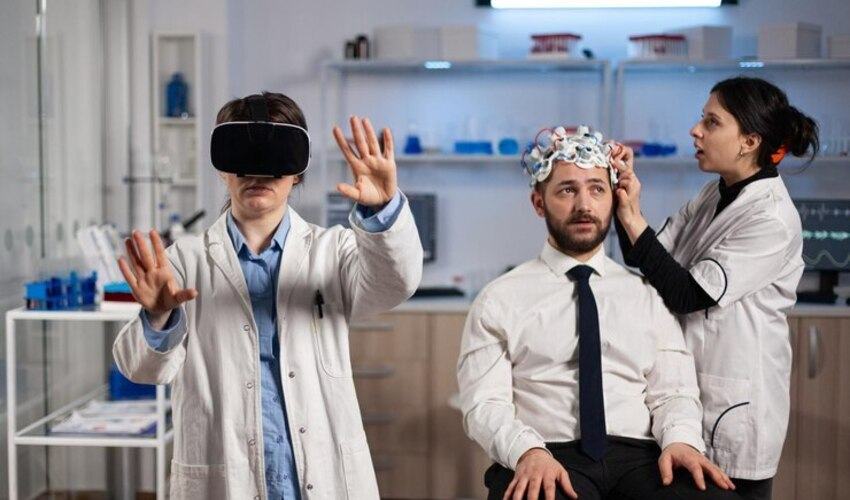An EMR stands for Electronic Medical Record. It is health-related information based on the individuals that can be developed, collected, managed, and consulted by authorized staff and clinicians within a healthcare company. EMRs have the facility to provide considerable advantages to healthcare organizations. These systems support workflow and enhance patient safety and patient care quality. In this article, we will tell you how EMR supports creativity and innovation.
Introduction
Electronic Medical Records (EMRs) and Electronic Health Records are important for the efficient management of confidential patient data. Integration of EMR/EHR is important for maintaining a competitive edge in the healthcare sector, enhancing patient experience, improving productivity, and protecting data. Medical institutions depend upon the ability to integrate EMR and EHR systems with their current technologies to strengthen measures of safe HIPAA faxing. It also compels them to attain top-notch patient care and more workplace efficiency. The National Center for Health Statistics in the US states:
- 88.2% of office-based physicians incorporate EHR and EMR systems.
- Whereas, just 77.8% of office-based physicians incorporate a certified EMR and EHR system.
Keeping this scenario under consideration, we are presenting some ways through which EMR helps in attaining creativity and innovation in healthcare.
It Offers Competitive Advantage
Companies that effectively integrate EHR and EMR systems can gain a significant competitive advantage over their counterparts. Integrated systems help providers deliver secure, efficient, and personalized experiences that attract and retain patients while achieving a unique selling proposition. Leveraging AI-driven innovations and data insights, medical facilities can drive continuous growth, innovation, and improvement. This positions them as market leaders.
It Provides Custom APIs and Streamlined Workflows With Integrations
Amalgamating the EMR and EHR systems with subsidiary apps via custom integrations and APIs maximizes clinical workflows. It also manages data exchange across the ecosystems. Custom APIs allow data consistency and interoperability. This decreases redundancies and errors while improving data security. Integration allows healthcare companies to provide patient-focused and coordinated care via standardized data formats and communication protocols. This demonstrates the significance of the best EMR for small businesses.
It Has the Ability of Harnessing the Power of AI
Integrating EMR and EHR systems with AI technologies holds huge importance for improving data security. It also drives significance in healthcare technology. AI-powered analytics can assess huge amounts of data to pinpoint patterns, anomalies, and trends. This allows preliminary threat detection and predictive insights to encourage proactive risk management. In addition, AI-driven algorithms can automate cybersecurity processes. it includes incident response and threat detection to strengthen their entire security mechanism.
It Leads To Improved Patient and Employee Experiences
The amalgamation of EHR and EMR integrations affects experiences by simplifying procedures and enhancing access to important information. This enables more effective patient care. These integrated systems enable the providers to access in-depth patient records immediately. It leads to customized care plans and more informed decisions. In addition to this, integrated solution allows patients to actively participate in their health journey. This is done by offering access to medical records. It also allows secure staff communication.
It also Increases Productivity
It combines EMR and EHR systems with other important apps. This enhances workflow and erases the requirement for manual data entry. It also boosts productivity. The automation of these repetitive tasks facilitates data exchange between dissimilar systems. It leads to increased productivity, cost savings, improved performance, and operational efficiencies.
Wrap Up
The incorporation of these technologies cultivates collaboration across healthcare ecosystems. Companies can reveal new opportunities for efficiency and innovation in the area of medicine. With time, medical practices are continuously evolving. Strategic Electronic Medical Records (EMRs) and Electronic Health Records (EHRs) will remain important for driving positive results and advancing the medical future.
Frequently Asked Questions (FAQs)
What is meant by EMR?
An EMR stands for Electronic Medical Record. It is health-related information based on the individuals that can be developed, collected, managed, and consulted by authorized staff and clinicians within a healthcare company. EMRs have the facility to provide considerable advantages to healthcare organizations.
What is the major advantage of an EMR?
The amalgamation of EHR and EMR integrations affects experiences by simplifying procedures and enhancing access to important information. This enables more effective patient care. These integrated systems enable the providers to access in-depth patient records immediately. It leads to customized care plans and more informed decisions. In addition to this, integrated solution allows patients to actively participate in their health journey. This is done by offering access to medical records. It also allows secure staff communication.

